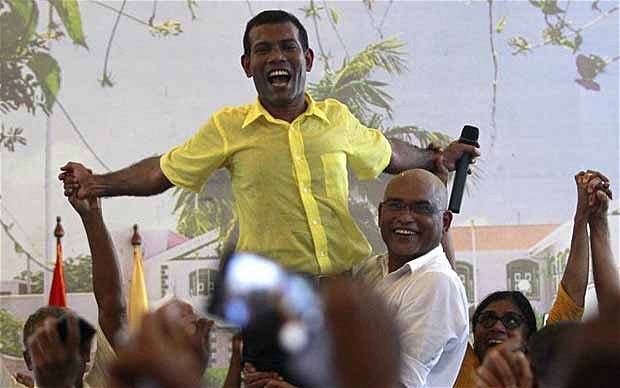Government had secret talks with Nasheed
Discussions were kept confidential, as requested by former president Mohamed Nasheed, but the minister said the government was forced to go public after the opposition violated an agreement and began discrediting the administration.

12 Mar 2018, 09:00
The government has held secret discussions with former president Mohamed Nasheed over a political crisis dating back to 2015, a minister said on Monday.
Fisheries Minister Mohamed Shainee said an agenda for talks was drawn up during discussions and that documents were shared between the opposition and government.
Political party talks were first held in 2015 after months of turmoil brought on by the arrest and imprisonment of Nasheed and ex-defence minister Mohamed Nazim, with the opposition and government attempting to bolster their position through a series of demands.
“We held separate discussions with some opposition leaders with the help of foreign experts and extensive talks were held with Nasheed,” Shainee told reporters, adding that Nasheed assured the government that discussions were being held with the consent of the joint opposition.
Become a member
Get full access to our archive and personalise your experience.
Already a member?
Discussion
No comments yet. Be the first to share your thoughts!
No comments yet. Be the first to join the conversation!
Join the Conversation
Sign in to share your thoughts under an alias and take part in the discussion. Independent journalism thrives on open, respectful debate — your voice matters.




